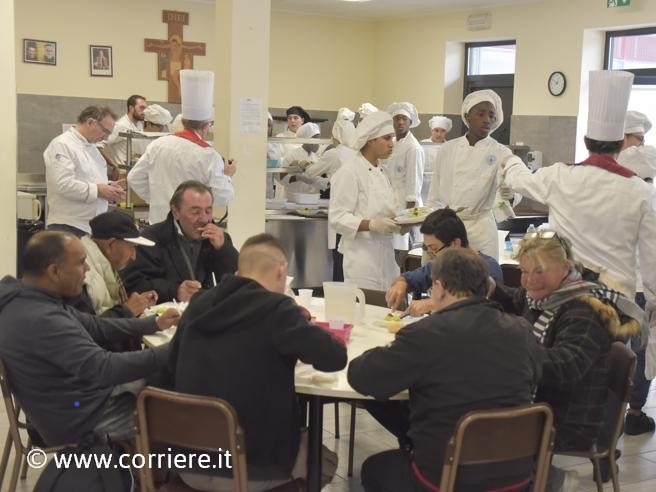Despite the record of donations, due to the pandemic the demand for food has increased by 40%.
The country’s emergency is explained by the numbers and forecasts of Banco Alimentare. From the beginning of the pandemic to 24 June 2020, Banco Alimentare has assisted 2.1 million people in Italy, compared to 1.5 million before the arrival of Covid-19 – an increase of almost 40%.
The demand for products from the charities increased by 40% with peaks of 70% in some regions in the south part of the country. Since mid-March, the number of accredited charities has also increased, +320 out of a total of 7,994. As far as recovery is concerned, in the first 6 months of 2020 compared to the same period last year, both the quantity (over 2,700 tons more) and the number of donors increased, with about 500 more new companies. “These are new contacts to be stabilized – explains the President of the Fondazione Banco Alimentare Giovanni Bruno – and it is a job that must be done mainly by local Food Banks (21 in total on the national territory) because many are local operators and the quantities, even if relatively small, are very important for the support to the poor”.
These are numbers that tell the reality of a need that grew with the outbreak of the health emergency and are expected to grow further in the coming months. “It is known that the worst will come from September onwards – analyses Bruno – and in autumn we expect a worsening of the situation from an economic and a social point of view. The redundancy fund and the block of layoffs will not last forever, many activities and SMEs that have tried to reopen probably will not make it and the savings of many families will not be enough”.
The country is preparing to face the situation. “Already in March through a Decree Law – explains Bruno – the government has increased by 50 million euros the fund for the purchase of food through calls for tenders to ensure the distribution of food”. In August, another Decree (Decreto Rilancio) increased by another 250 million euros the resources allocated to the distribution of food to the most deprived. The European Commission has also decided to give additional resources to the FEAD (Fund for European Aid to the Most Deprived) which supports interventions promoted by individual countries. These are resources that are already supporting Banco Alimentare in its daily activity. Banco Alimentare confirms that, as far as food is concerned, many of the products coming from the additional allocations have begun to flow into the warehouses: tuna, seed oil, flour, baby food, ham, fruit juices, tomato pulp, canned meat have arrived or will arrive in the coming weeks.
Source: www.corriere.it




